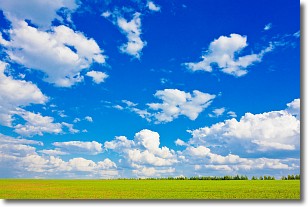Weather Alert in Texas
Flood Advisory issued May 6 at 5:54AM CDT until May 6 at 9:00AM CDT by NWS San Angelo TX
AREAS AFFECTED: Callahan, TX; Coleman, TX; Jones, TX; Runnels, TX; Shackelford, TX; Taylor, TX; Throckmorton, TX
DESCRIPTION: * WHAT...Urban and small stream flooding caused by excessive rainfall is expected. * WHERE...A portion of west central Texas, including the following counties, Callahan, Coleman, Jones, Runnels, Shackelford, Taylor and Throckmorton. * WHEN...Until 900 AM CDT. * IMPACTS...Minor flooding in low-lying and poor drainage areas. * ADDITIONAL DETAILS... - At 551 AM CDT, Doppler radar indicated heavy rain due to thunderstorms from Rowena and Ballinger to Winters to Baird to Albany to Woodson and Throckmorton. Storms were moving northeast at 35 mph. This will cause urban and small stream flooding. Between 0.5 and 2.25 inches of rain have fallen. - Additional rainfall amounts of 0.5 to 1.5 inches are expected over the area, including Abilene. This additional rain will result in minor flooding. - Some locations that will experience flooding include... Abilene, Coleman, Ballinger, Clyde, Winters, Albany, Baird, Throckmorton, Maverick, Merkel, Tye, Cross Plains, Miles, Tuscola, Buffalo Gap, Lawn, Moran, Woodson, Novice and Putnam. - This includes Interstate 20 between Mile Markers 264 and 323. This includes the following Low Water Crossings... Intersections along Sammons Street, Butternut Underpass, Intersections along Buttonwillow Parkway, Curry Lane from Clack Street to Catclaw Drive, I-20 Frontage Roads west of Clyde, Texas Avenue at Arnold Boulevard, I-20 Frontage Roads near Baird, I-20 Frontage Roads near Putnam, FM 0383 crossing Quarry Creek and Antilley Rd. crossing Button Willow Creek. - http://www.weather.gov/safety/flood
INSTRUCTION: Turn around, don't drown when encountering flooded roads. Most flood deaths occur in vehicles.
Want more detail? Get the Complete 7 Day and Night Detailed Forecast!
Current U.S. National Radar--Current
The Current National Weather Radar is shown below with a UTC Time (subtract 5 hours from UTC to get Eastern Time).

National Weather Forecast--Current
The Current National Weather Forecast and National Weather Map are shown below.

National Weather Forecast for Tomorrow
Tomorrow National Weather Forecast and Tomorrow National Weather Map are show below.

North America Water Vapor (Moisture)
This map shows recent moisture content over North America. Bright and colored areas show high moisture (ie, clouds); brown indicates very little moisture present; black indicates no moisture.

Weather Topic: What are Contrails?
Home - Education - Cloud Types - Contrails
 Next Topic: Cumulonimbus Clouds
Next Topic: Cumulonimbus Clouds
A contrail is an artificial cloud, created by the passing of an
aircraft.
Contrails form because water vapor in the exhaust of aircraft engines is suspended
in the air under certain temperatures and humidity conditions. These contrails
are called exhaust contrails.
Another type of contrail can form due to a temporary reduction in air pressure
moving over the plane's surface, causing condensation.
These are called aerodynamic contrails.
When you can see your breath on a cold day, it is also because of condensation.
The reason contrails last longer than the condensation from your breath is
because the water in contrails freezes into ice particles.
Next Topic: Cumulonimbus Clouds
Weather Topic: What are Cumulus Clouds?
Home - Education - Cloud Types - Cumulus Clouds
 Next Topic: Drizzle
Next Topic: Drizzle
Cumulus clouds are fluffy and textured with rounded tops, and
may have flat bottoms. The border of a cumulus cloud
is clearly defined, and can have the appearance of cotton or cauliflower.
Cumulus clouds form at low altitudes (rarely above 2 km) but can grow very tall,
becoming cumulus congestus and possibly the even taller cumulonimbus clouds.
When cumulus clouds become taller, they have a greater chance of producing precipitation.
Next Topic: Drizzle
Current conditions powered by WeatherAPI.com




